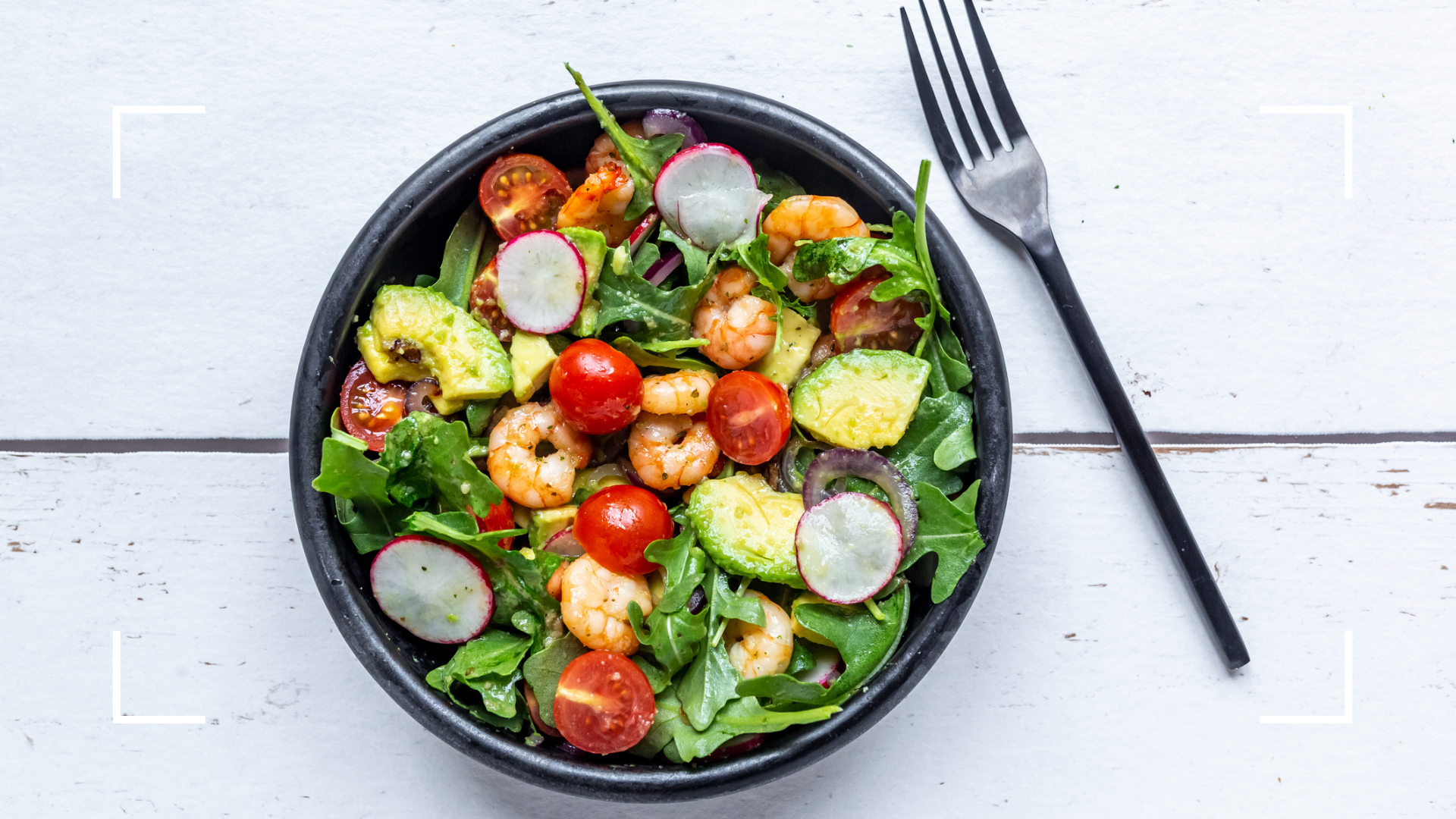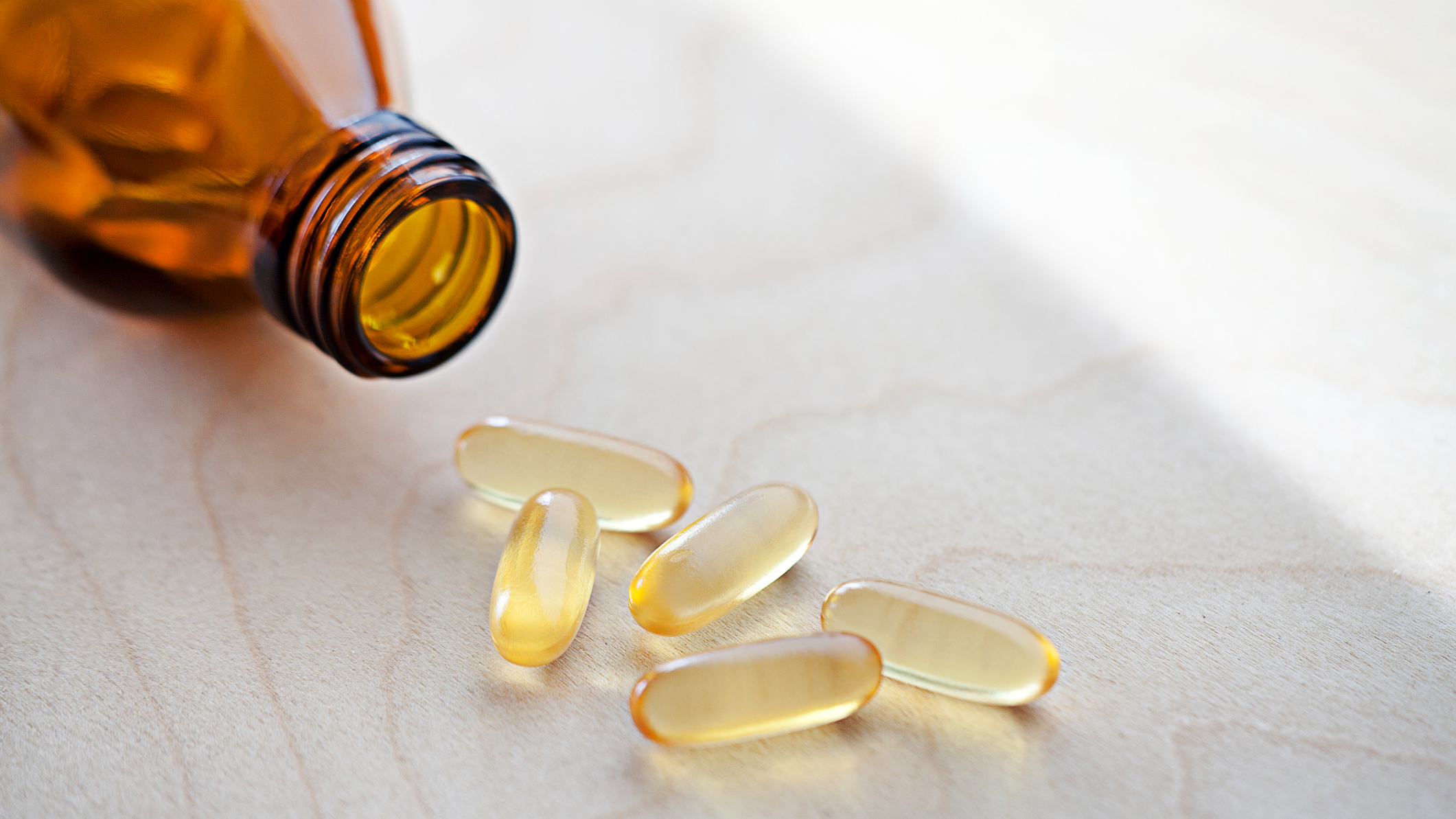What are B vitamins and which foods can they be found in?
When it comes to your immune system and energy levels, topping up on enough B vitamins is vital


You almost certainly know the importance of vitamin C, and why vitamin D is essential—but you may not be aware that B vitamins are also crucial for your health. They're important for everything from immunity to energy, and we should be ensuring we get enough of this key nutrient in our daily diets.
There's no need to feel overwhelmed. We've broken down everything you need to know about this handy nutrient. Read on to find out what each form is useful for—from vitamin B1 right up to B12—as well as which foods are rich in B vitamins. You'll also find out the signs your body might be suffering from nutrient deficiency, and whether a supplement could help.
Breaking down B vitamins—the different types you should know

“Vitamin B represents not just one vitamin, but rather refers to eight different vitamins that each play a role in your overall health and wellness," says Christina Jordan, nutritionist and founder of Fit Body Weight Loss. "Each of these B vitamins plays a leading part in your immune system, metabolic health, and converting food into life-giving energy.”
This last point can be very important if you regularly feel tired in winter. She explains they are particularly essential for women over 30, whose bodies have more difficulty absorbing nutrients. But what does each B vitamin do, and which foods are they found in?
Vitamin B1
What does it do? Vitamin B1—known as thiamin—is vital to the healthy growth and function of organs, going directly to your brain and heart, says Jordan.
Where is it found? Adam Chimera, nutritionist and founder of Root’d, notes that vitamin B1 is most prevalent in whole grains (including ancient grains), legumes, and pork.
How much do you need? There's a daily requirement of 1.1 mg of vitamin B1, explains medical doctor Dr Kish Sritheran of Mytamin.
Sign up to our free daily email for the latest royal and entertainment news, interesting opinion, expert advice on styling and beauty trends, and no-nonsense guides to the health and wellness questions you want answered.
Vitamin B2
What does it do? According to Jordan, vitamin B2—or riboflavin—helps our bodies break down fats and toxins from daily life, like GMOs, food coloring, synthetic ingredients, and other drugs.
Where is it found? Vitamin B2 is present in beef liver, oatmeal, and fortified foods like fortified tofu or milk, says Adam.
How much do you need? Dr Sritheral reveals that we need 1.1 mg of vitamin B2 a day.
Vitamin B3
What does it do? Vitamin B3, known as niacin, is a necessity in maintaining collagen, muscle growth, healthy skin, nerves, and digestion, explains Jordan. Niacin has also been shown to help with high cholesterol.
Where is it found? According to Chimera, vitamin B3 is commonly available in beef liver, chicken, and brown rice. It's also present in peanuts, quinoa, nutritional yeast, and whole grains.
How much do you need? Women over 19 years old require 14mg of vitamin B3 a day, says Dr Sritheral.
Vitamin B5
What does it do? Vitamin B5, or pantothenic acid, is essential for maintaining a positive mood and the health of the brain and nervous system. Christina notes that it has been shown to help with anxiety, tension, and moodiness.
Where is it found? Adam says that vitamin B5 is typically present in beef liver again, as well as mushrooms and avocados.
How much do you need? Usually, 5 mg of vitamin B5 a day is the required amount for the average adult woman, according to Dr Sritheran.
Vitamin B6
What does it do? As Christina explains, vitamin B6—or pyridoxine—is a natural fat-burning vitamin that helps the body make new red blood cells, which are also responsible for aiding the body’s immune system.
Where is it found? Vitamin B6 is in foods like yellowfin tuna, beef liver, and chickpeas, says Adam.
How much do you need? For women between 19 and 50 years old, 1.3 mg of vitamin B6 should be enough. For those over that age, a slightly elevated amount of 1.5 mg a day is suggested by Dr Sritheran.
Vitamin B7
What does it do? Vitamin B7, also known as biotin, helps create healthy hair, nails, and nerve function, says Jordan.
Where is it found? Adam explains that vitamin B7 is—surprise, surprise—found in beef liver, as well as in eggs and sweet potatoes.
How much do you need? It's estimated that women need about 0.3mg of vitamin B7 per day.
Vitamin B9
What does it do? Vitamin B9, also known as folic acid or folate, gives our bodies support with tissue growth or healing. “Your body needs folic acid to make DNA and genetic material when healing from injury, sickness, or hormone changes,” says Jordan.
Where is it found? Adam explains that vitamin B9 is present in leafy greens, Brussels sprouts, and beef.
How much do you need? Women need about 0.4mg a day of vitamin B9.
Vitamin B12
What does it do? "Vitamin B12, or cobalamin, is the queen bee of the vitamin B family,” explains Christina. “It is responsible for the entire metabolic process, as well as your body’s nervous system and blood production. Your blood cells require vitamin B12 to prevent anemia, a low immune system, and metabolic hormone imbalances.”
Where is it found? B12 is most commonly found in animal products, so meat, fish, eggs, and dairy. If you are following a vegetarian or vegan diet then it is also available in mushrooms, nutritional yeast, and seaweed, says Chimera.
How much do you need? Usually, 2.4 mcg a day of vitamin B12 is likely to suffice for a healthy woman’s diet, says Dr Sritheran.
Signs you could be deficient in B vitamins?

There are a number of indicators that could point to your body being low in B vitamins. Jordan explains:
- Weight gain
- Increased stress
- Low energy
- Fatigue
- Depression
- Chronic colds or viruses
- Anemia
- Bloating and intestinal problems
- Muscle weakness
- Poor memory
- Soreness of the mouth, tongue, or gums
- Low immunity
Should you take B vitamin supplements?

Sometimes it's not possible for people to absorb B vitamins from exclusively dietary sources. in these cases, taking supplements could help. Jordan suggests seeking the guidance of a nutritionist to help establish which form you should be taking, and in what quantity, since the wide variety of options out there can be "confusing".
This is particularly important since taking the wrong supplements may create an imbalance in your system. "Select a trusted brand of vitamin B complex that uses an independent quality testing of their products," explains Jordan. "This means they can show that their supplements are pure and free of toxic additives and contain a pure vitamin formula.”
w&h thanks Christina Jordan of Fit Body Weight Loss, Adam Chimera of Root’d, and Dr Kish Sritheran of Mytamin for their time and expertise.

Lauren is a freelance writer and editor with a decade of print and digital journalism experience. While she specialises in covering health and wellness topics - ranging from nutrition and fitness, to women’s health conditions and mental wellbeing - she has written across a diverse range of lifestyle topics, including fashion, beauty, homes, royals and travel.
In addition to writing for Woman & Home and sister title Homes & Gardens, Lauren's work has also been published by Women’s Health, The Times, Daily Telegraph, Elle, Cosmopolitan, The Guardian, Marie Claire, Body + Soul, Stylist, Glamour, Grazia, Red, Dazed Digital, Yahoo Life, The Sun’s Fabulous, Get The Gloss and Hello! among others.